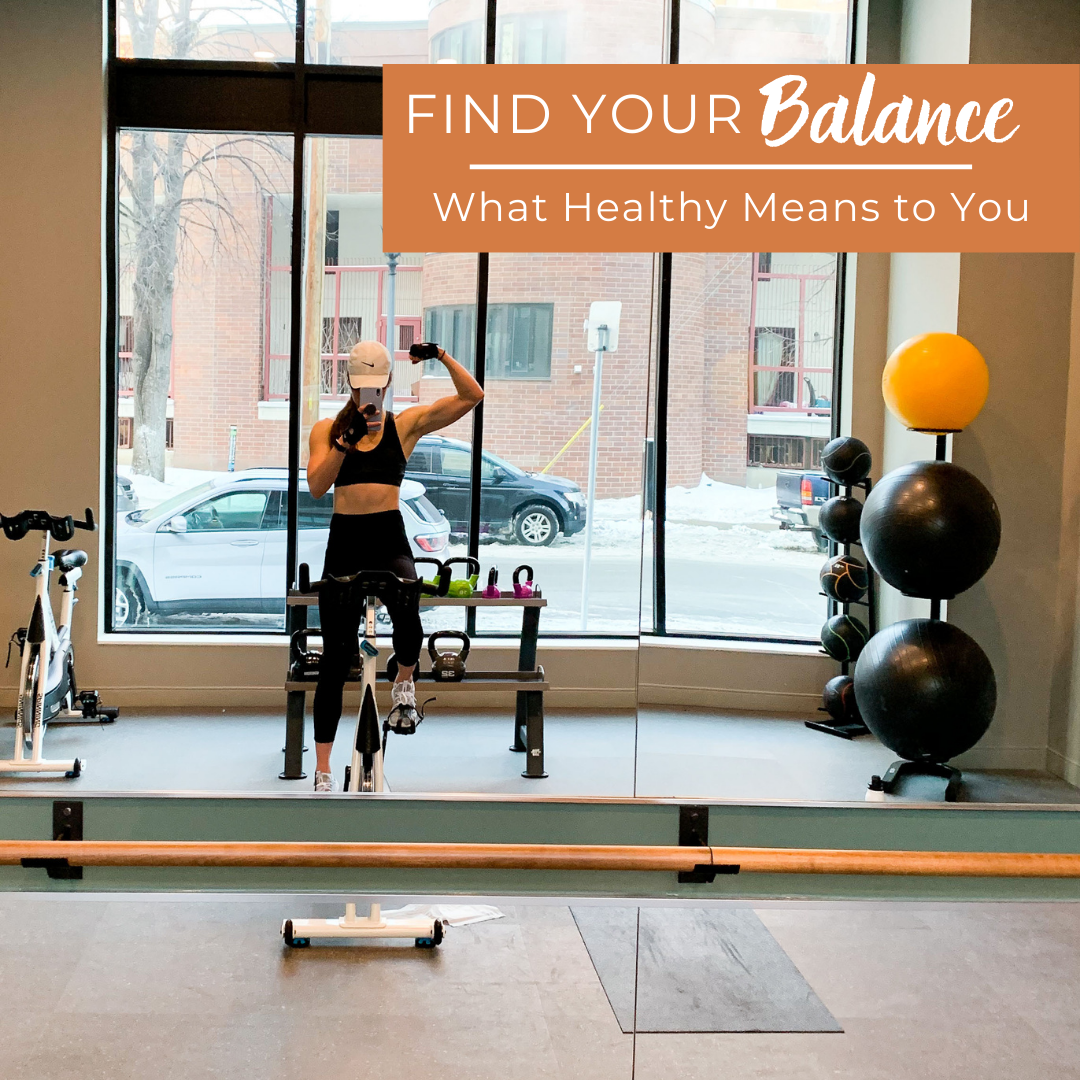There is, technically, one definition of the term “healthy”. However, there are many ways to apply it - in fact, there are as many ways as there are humans on this earth because healthy is not defined only by a food’s nutrition label or a workout’s estimated calorie burn. Similarly, what is healthy for you may not be so for me. Of course, there are general exceptions to this rule: broccoli is nutritious, walking is good for the body, 7-8 hours of quality sleep is important, etc. - but those are, like I said, general. How do we uncover the specifics of healthy and apply this to our own individual lives?
Here are some questions and example scenarios to consider as you start setting goals and consider making some lifestyle changes, and most importantly, evaluating your current habits and daily routines. Keep in mind that this process takes time. Ask yourself these questions regularly and record your answers by keeping a journal (don’t rely on “mental notes”). Each day, each week, and over time, each month, review your responses and use this information to guide yourself through the beginning of the change process.
How do I feel, physically?
If it was a meal, notice the signals your body is sending you. Are you satisfied? Energized? Are you feeling lethargic? Bloated? Be mindful about the way foods make you feel after you eat them, and use this information to help guide your decisions at future meals. Notice how I said guide, not determine or restrict. My favorite pizza does not leave me feel the same way a bowl of brown rice and roasted veggies does. Of course! I love both of those meals and include both of them regularly because both satisfy me in different ways.
If it was a workout, are you tired? Exhausted? Or are you excited and ready to take on the day? How do your muscles and joints feel? Take note of these signals - your body is speaking to you! Ignoring what your body tells you can easily lead to burnout or, even worse, injuries. Most importantly, your workout should not leave you drained every single day - that’s a common misunderstanding these days with the popularity of circuit-training and HIIT workouts. Move your body and challenge yourself, but there is absolutely zero benefit in going balls-to-the-wall 5-6 days a week.
How do I feel, mentally?
Food: Satisfaction is an important component here, too, not just physically. Are you still thinking about food, maybe something sweet? Or was that meal perfectly balanced with all the flavors and textures and aromas you were craving? Were you able to enjoy the meal with loved ones? For me, that usually boosts the mental satisfaction I feel after eating - sitting around the table, engaging in conversations, talking about food and life and whatever else comes up. I enjoy eating alone, sometimes, but doing so every single night tends to get old, so I love incorporating meals with friends and family every week.
Exercise: Did I challenge myself? Or did I take it easy? Was I focused, or was I thinking about something else? For some, exercise is their only chance for “me time” throughout the day, so they find un-plugging from the rest of the world for 30-45 minutes easier than others, who might dread exercise. Do you feel more relaxed, or more anxious? Exercise is a proven method of reducing stress, so if you’re noticing feelings of heightened anxiety or stress post-workout, that might be a sign it’s time for a break.
Did I enjoy that?
Food: How did the food taste? What was the texture like? Did I have fun cooking it? A good, juicy, cheesy burger is one of my most crave-worthy meals, but I only eat it at certain restaurants because 1) I just cannot replicate it at home, and 2) some restaurants do it better than others. Or if you visited a restaurant, how was the service and the atmosphere? Would you visit again, even if the food or service weren’t that great but the other was? If you ate with others, did you enjoy the company? Honestly, I’ve eaten with some people and left the meal not wanting to eat with them again (hey, just being honest!).
Exercise: I’ll be brutally honest again - I really don’t enjoy group exercise classes, and I would much rather workout alone than with a friend. My workout time is my me time! But some love group classes and finding their workout buddy. If that keeps you moving regularly, that’s great! These classes and group environments can be essential sources of support for so many people who find it difficult to just enjoy moving their bodies. What makes exercise FUN for YOU?
Will this behavior help me accomplish my goals, or will it create barriers?
Food: Will writing down the foods I consume everyday for a week help me snack less? (Hint: it’s very likely). Will that one extra glass of wine really negate all the other nutritious food and beverage choices I’ve made this week? (Hint: it’s not likely). This is a great example of applying the practice I discussed in my last post: zooming in and becoming aware of the nutrition facts of a given food, beverage, or meal, and then zooming out for a better view of how that food, beverage, or meal fits into your week. If you’ve been able to stay mostly on track Monday-Friday - eating your veggies, whole grains, and lean protein (also sleeping well and managing stress!) - then, like I said earlier, it’s not likely that an extra glass of wine on Saturday night will result in a significant setback in reaching your goals. On the other hand, mindlessly snacking on the donuts at the office a few days a week can really add up. Boost your awareness of this habit and hold yourself accountable to making more mindful, nutritious choices by writing down the foods you eat everyday. You’ll begin to see the habits that create barriers to accomplishing your goals.
Exercise: Will an extra 10-15 minutes of walking each day help me move more throughout the day? Absolutely, especially if you’re like me and work a 9-5 desk job 5 days a week. Will taking the high-intensity spin class at the gym every morning help me boost my upper body strength? I doubt it. Speaking of goals, make sure you’re setting them properly and effectively. Be clear with yourself (and your certified personal trainer, if you have one) about your fitness goals, and prioritize the workouts and movement patterns that will progress you towards reaching those goals. If your goal is to improve your cardiovascular fitness, that spin class would be a good idea once or twice a week. If your goal is to see some serious upper body gains, incorporating resistance training is a much more effective method of achieving that goal. Be clear. Be realistic. Challenge yourself.






